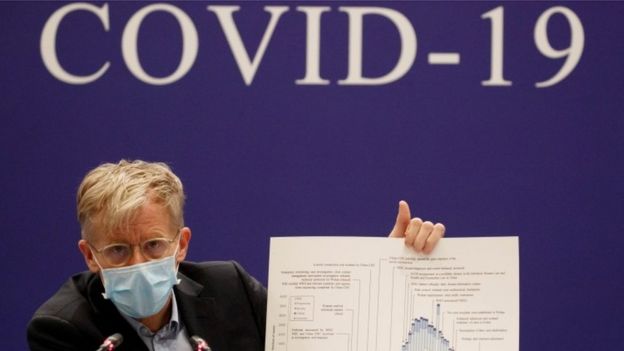Liebe Landsleute,
die Ausbreitung der Atemwegserkrankung COVID-19 führt weltweit zu verstärkten
Einreisekontrollen, Gesundheitsprüfungen mit Temperaturmessungen und Einreisesperren.
So haben auch die philippinischen Behörden aufgrund der Ausbreitung der Atemwegserkrankung
Covid-19 für alle Reisenden aus Ländern mit bestätigter lokaler Übertragung des neuartigen Virus ein
Einreiseverbot verhängt – hierzu zählt auch Deutschland. Betroffen sind auch Transitpassagiere.
Ausnahmen gelten für philippinische Staatsangehörige und deren Familienangehörige sowie für
Reisende mit einer längerfristigen Aufenthaltsgenehmigung für die Philippinen. Diese unterliegen
jedoch nach Einreise gegebenenfalls einer 14-tägigen Quarantäne. Diese Regelung gilt bis auf
weiteres.
Erkundigen Sie sich ggf. bei der für Sie zuständigen philippinischen Auslandsvertretung vor
Reiseantritt nach den aktuellen Einreisebestimmungen und setzen Sie sich ggf. vor
Reiseantritt mit Ihrer Fluggesellschaft in Verbindung.
Für den Großraum Manila (Metro Manila) gelten ab 15. März 2020 ab Mitternacht bis zunächst 12.
April 2020 Ein- und Ausreisesperren auf dem Land-, See- und Luftweg. Quarantäne-Maßnahmen
können von den lokalen Gemeinden kurzfristig beschlossen werden. Mit kurzfristig verhängten
weiteren Einschränkungen muss gerechnet werden.
Bedenken Sie, dass innerphilippinische Reisen, insbesondere von und nach Manila (einschl.
Flughafen) eingeschränkt, ggf. unmöglich sein werden.
Erwägen Sie ggf. eine umgehende Rückkehr nach Deutschland und setzen Sie sich vor
Reiseantritt mit Ihrer Fluggesellschaft in Verbindung.
Nach bislang vorliegenden Informationen sind internationale Flüge über Cebu und Clark
möglich. Diese Flughäfen sind nach derzeitigem Stand auch nach dem 15. März 2020 noch
erreichbar.
Verfolgen Sie die lokalen Medien und folgen Sie den Anweisungen der Behörden.
Vor dem Hintergrund der Ausbreitung der Atemwegserkrankung möchte Ihnen die Deutsche
Botschaft Manila noch einige Hinweise und empfohlene Maßnahmen weitergeben. Zur Vermeidung
einer Infektion bzw. Weiterverbreitung der Erkrankung sind folgende Maßnahmen empfohlen:
- Bitte beachten Sie die fortlaufend aktualisierten Informationen zu COVID-19/Coronavirus.
- Kein Händeschütteln zur Begrüßung oder Verabschiedung, keine sonstigen Berührungen der Hände.
- Gute persönliche Hygiene, insbesondere regelmäßiges richtiges Händewaschen. Desinfektionsmittel
zur Händedesinfektion sind nicht zwingend erforderlich, wenn die 10 wichtigsten Hygieneregeln der
Bundeszentrale für gesundheitliche Aufklärung unter
https://www.infektionsschutz.de/hygienetipps/hygiene-beim-husten-und-niesen.html befolgt
werden. Ggfs. sollte Desinfektionsmittel benutzt werden, dabei bitte auf Wirksamkeitsstufe achten:
Wirksam sind Mittel, die als „begrenzt viruzid“ (wirksam gegen behüllte Viren), „begrenzt viruzid
PLUS“ oder „viruzid“ eingestuft sind.
- Husten- und Nies-Etikette unter https://www.infektionsschutz.de/hygienetipps/hygiene-beim-
husten-und-niesen/
- Vermeidung von engem Kontakt mit Personen mit Atemwegserkrankungen.
- Regelmäßige Reinigung von Kontaktflächen (Arbeitsflächen, Türgriffe, Tastaturen, Handläufe an
Treppen etc.) mit Desinfektionsmittel, v.a. in Räumen, in denen Menschen ein- und ausgehen.
- Ggfs. in Erwägung ziehen einer Impfung mit dem aktuellen Impfstoff gegen Influenza. Influenza ruft ähnliche Symptome wie SARS-CoV-2 hervor. Unabhängig von dem persönlichen Schutzeffekt trägt die Impfung zur Vermeidung unnötiger Verdachtsfälle und Belastungen von Gesundheitseinrichtungen bei.
- Bei Auftreten von Fieber, Husten oder Atemschwierigkeiten in oder nach Rückkehr (bis maximal 14
Tage nach Erkrankungsbeginn) aus Risikogebieten
https://www.rki.de/DE/Content/InfAZ/N/Neuartiges_Coronavirus/Risikogebiete.html soll umgehend
telefonischer Kontakt mit einem Arztes oder einer Ärztin aufgenommen und das weitere Vorgehen
besprochen werden.
- Bei Symptomen wie Husten oder erhöhter Temperatur ab 37,3°C, zuhause bleiben. Sollte Kontakt
zu einem COVID-19-Fall bestanden haben, soll umgehend telefonischer Kontakt mit einem Arztes
oder einer Ärztin aufgenommen und das weitere Vorgehen besprochen werden. Halten Sie sich bitte
zudem an eventuelle Vorgaben durch das lokale Gesundheitssystem.
Weitere Informationen können Sie auch in den Reise- und Sicherheitshinweisen des Auswärtigen
Amts unter dem Link https://www.auswaertiges-amt.de/de/ReiseUndSicherheit/reise-und-
sicherheitshinweise finden.
Sie können die Reise- und Sicherheitshinweise auch als Newsletter abonnieren:
www.diplo.de/newsletter. Für mobile Geräte bieten wir unsere Gratis-App „Sicher Reisen“ an:
www.diplo.de/app-sicherreisen. Weitere Informationen erhalten Sie auch über den Twitter-Kanal des
Krisenreaktionszentrums des Auswärtigen Amts: https://twitter.com/aa_sicherreisen?lang=de
Die Botschaft Manila bleibt für den Publikumsverkehr in der Konsular- und Visaabteilung bis auf
weiteres regulär geöffnet. Sollten Sie nicht in der Lage sein, Ihre gebuchten Termine wahrzunehmen,
stornieren Sie diese bitte über unser Terminvergabesystem. In dringenden Notfällen erreichen Sie die
Botschaft außerhalb der Dienstzeiten unter der Mobilnummer +63-917 867 3000. E-Mail-Anfragen
können nur während der Dienstzeiten eingesehen werden.
Alles Gute und bleiben Sie gesund!
Ihre Botschaft Manila











